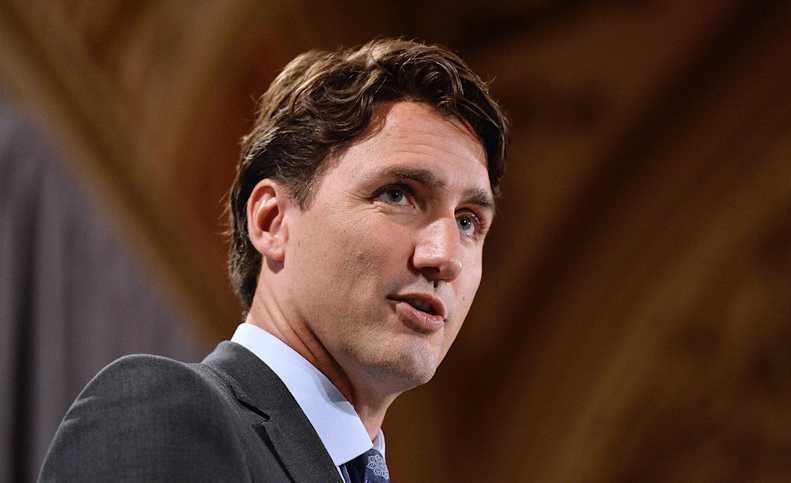
“How do they do it, Teach ?” Some thoughts about sex education in Ontario schools
“How do they do it, Mom, boys who like boys, and girls who like girls?”
If the answer to this question posed by a third grader to her mother, who is very liberal, sexually open and a highly progressive supporter of sex education in schools, does not exactly just roll right off your tongue, you are likely much like the people I asked this to in my network.
Professional working neighbours with post graduate education who have both had sexual partners and children said, “Oh! Wow! I would not answer that?” said the woman. “I have no idea what I would say!”, said the man.
A high school teacher, whose colleagues have said that he was the only teacher in the school who could competently teach any subject, who has had more than one sexual partner, was married, raised children and who is totally supportive of progressive sex education in schools said, “I would not answer that. I would avoid the topic. I would not want to have to teach that curriculum.”
The mother herself whom I know well, in the privacy of her home, with a child she adores and whom she has prepared for the discussion of sexual orientation as well as any child is likely to be at 8 years of age, responded, “They find a way!”
These three answers from rather typical people in my network and probably among the more left-leaning folk in Ontario, caused me to reflect on the controversy surrounding the sex education curriculum put in place in 2017, by Premier Kathleen Wynne, and then withdrawn by new Premier Doug Ford for further study in 2018.
I personally recall my own lack of preparedness in 1965, in my first grade 8 class, as a 20 year old, a virginal and religious young teacher being asked by a 15 year old whether it was alright to sleep with your boyfriend. I was extremely uncomfortable with the question, hardly even knew what it meant myself and am rather embarrased today at how I answered it!
In my second career as a social worker, I was often required to discuss sexuality and a couple’s satisfaction with their sexual relationship. I recall that the vast majority of my clients found this a difficult topic and even in the privacy of my office, guaranteed confidentiality, struggled with pretty basic questions about their own loving adult relationship, for the few minutes needed for assessment of their family for adoption.
In my teaching career, I recall quite vividly discussions, comments and gossip about the suitability of assorted professional teachers when some were assigned Physical Education, Health and Sex Education in the Intermediate division, hearing more than once colleagues saying things like, “ I would not want him teaching that subject to my son or daughter! I do not like his lifestyle or values!”
I recently listened to the Town Hall in Ottawa, Ontario on November 29, 2018 conducted by the Ministry of Education for one and one half hours on the Sex Education curriculum and heard a wide range of concerns raised by callers. Despite an overall agreement from the callers that we need to educate Ontario children about sex, exactly how to do it, and when, was quite controversial.
I would hate to be the Ministry trying to meet the needs of Ontario children for appropriate sex education, as it is obvious one size does not fit all. No matter what is decided, there will be some very challenging problems to solve no matter what!
On the Town Hall, I raised three issues, which I hope will be taken under very serious consideration before a government forges ahead doing its best, but in a minefield of potentially lifelong implications of their decisions for all Ontario youngsters.
The first consideration is the values which will be taught. Who will be deciding the values a teacher must attach to questions and content in this highly controversial and value laden education. What will be the correct answer that a teacher must give if asked in class, “Is it alright to sleep with my girlfriend/boyfriend? Should I start carrying a condom in my pencil case?” a seventh grader may ask.
What will be the correct answer to such a question, that will suit every child and every parent, from every background in Ontario? You can see from this singular example the problem of values.
Whose values and which ones?
The second consideration is who will be teaching it? It appears that every classroom teacher in the Elementary panel will be presenting the Sex Education curriculum. In my travels, since November 2017, I have not met anyone who has even read it , yet almost everyone seems to have strong opinions about it, on both sides of the spectrum. Everyone seems to know people they would not want delivering the curriculum to their child. All kinds of people say they personally would not be comfortable having to talk about this subject in a classroom situation. My concern is for the teachers who are once again being asked to do something most are ill prepared to do.
Most teachers are average folk, good at academics, lovers of learning and lovers of children. Wonder women and Wonder men they are not! Expecting teachers whose area of expertise and study is Mathematics or Science or Computers for example, to be comfortable to teach this subject, yet alone competent in the knowledge required to do it is unrealistic. It is likely a thought of only those who have never had to do it and who are likely very far away from the front lines! I can only imagine the headaches in accountability for the coverage of this curriculum and competence of the professionals being asked to do it! It may result in even more teachers experiencing increased stress in their jobs and teaching assignments. This field requires a high level,of knowledge. It requires a high level of skill to get the right atmosphere in the class and rapport among the student group.It requires a specialist really good at open discussion and comfort with any question a child might raise. The truth is, most of us teachers cannot claim this to be a reality among ourselves and teaching colleagues.
The third issue is the confidentiality and privacy of each child who speaks, shares or comments on many issues in this curriculum, in a classroom, in an Ontario school. Statistics Canada indicates that 10% of females under 18 have reported a substantiated experience of sexual abuse. Significant research suggests the up to 48% of females actually experience sexual abuse in our culture but that it is a highly under reported crime. I learned at a training conference for Child Welfare Social Workers and foster parents offered by the Ottawa Childrens’ Aid Society that up to 80% of foster children may experience sexual abuse. Statistics for male children are somewhat lower, but I suspect highly under reported as well.
Given these statistics, what protection will children have in our school system if they discuss and share any of their personal experiences, which I think could happen often in a classroom setting when a good discussion gets going. Revealing any of this kind of abuse could very much go against the child and be spread around, gossiped about, texted about on cell phones and like dandelion seeds in the wind, completely unable to be retrieved. The emotional and social costs could be enormous for children. And I wonder how many average teachers could actually handle it?
Sexual education is a minefield for curriculum designers, for the teachers who will present it and the children who will receive it.
May our leaders take care in what they do!








